Turmeric and Acne
Turmeric is a root that looks much like ginger root. The actual root is sold at health-minded grocery stores such as Whole Foods and it is very expensive! However, it may be worth the price as it has lots of health benefits. It’s much more commonly found in a powdered spice form and you can get it in the spice aisle of just about any grocery store. It is also available as a health supplement in capsule, powder or tea form. Turmeric has excellent anti-inflammatory properties and wide ranging benefits. It is also a tasty herb. Turmeric is valued for more than just its cooking uses. The herb has been used in the Ayurvedic healing tradition for centuries. Curcuminoids found in turmeric benefit joints and other tissues by helping to neutralize free-radicals. Through its antioxidant mechanisms, curcumin supports colon health, exerts neuroprotective activity and helps maintain a healthy cardiovascular system.
 Turmeric is known to:
Turmeric is known to:
- Reduce inflammation. This is turmeric’s shining quality – it’s incredibly anti inflammatory. Acne is inflammation, so you definitely want this for your skin!
- Detoxify your liver. People with severe liver problems should consult a doctor before trying to take turmeric supplements.
- Fight free radicals. Free radicals disrupt and damage the sebum and cells in your skin.
- Sooth the digestive tract. Believe it or not many acne problems start with poor digestion.
As with any health supplement, if you truly want to get the medicinal properties out of turmeric, it’s best to use it consistently — at least a spoonful or two per day. It has a vaguely pungent bitter flavour, but the flavor is not overly strong. You can add it to your food whenever it makes sense. Since it has such a bright yellow color, it can make your food look much more fun and exotic! This is especially true of rice dishes. Vegetarians like to mix turmeric with tofu to make fake scrambled eggs as the bright yellow color of turmeric lends itself perfectly to this.
 Turmeric for Your Skin
Turmeric for Your Skin
If you want to, you can apply turmeric directly to your skin as a mask, and it can help with inflammation and acne scars on the face. You can mix it with a bit of honey and lemon juice, or perhaps aloe vera gel, and apply it to the skin — let it sit for a while, and gently wash it off. However one user reported:
I have to warn you though, this can turn your skin a bit yellow! I tried it once, and when I washed it off I thought I thought that I was in the clear on the yellow front… but the next day, in brighter sunlight, my mom asked me what was on my face. Knowing that she had more tact than to point out an acne blemish, I inquired further as to what she was talking about, and it turned out that ‘it look like I had jaundice’. Soo…. be careful! hahah … if you dare to venture into the world of turmeric masks, I would suggest maybe leaving it on for only ten to fifteen minutes as opposed to the half hour or so I had let mine sit.

 Subscribe Now
Subscribe Now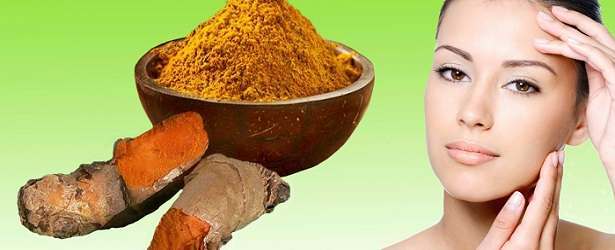
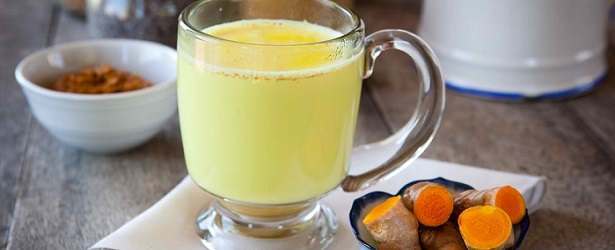
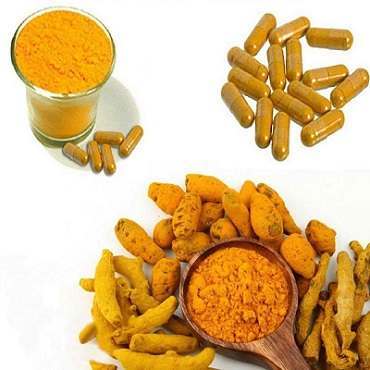 What is the Turmeric Diet?
What is the Turmeric Diet? Turmeric curcumin has an effect on your body inhibiting the cell division of fat cells. The mechanism by which turmeric helps you block fat is straightforward. Curcumin inhibits the formation of fatty tissue by blocking the method used to form it. It does this by supressing your blood vessels used to form fat tissue.
Turmeric curcumin has an effect on your body inhibiting the cell division of fat cells. The mechanism by which turmeric helps you block fat is straightforward. Curcumin inhibits the formation of fatty tissue by blocking the method used to form it. It does this by supressing your blood vessels used to form fat tissue.
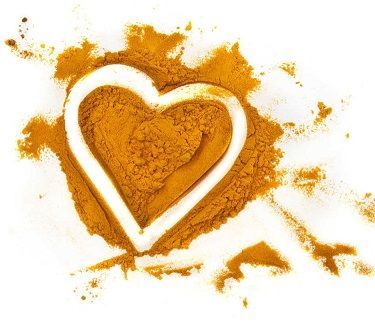 Turmeric has the following effects and health and general benefits:
Turmeric has the following effects and health and general benefits: As a known anti-inflammatory, Turmeric is widely used to ease inflammation. Inflammation takes many forms, and it can occur in many places throughout the body. One such is the brain, where Alzheimer’s disease forms. Researchers performed a study the effect of curcumin on the combined damage that occurs as a response to amyloid formation in Alzheimer’s-predisposed mice. In the study, the mice were tested with both low and high doses of dietary curcumin to determine its effect on inflammation, oxidative damage, and plaque pathology. Both the low and high doses of curcumin were found to succeed in reducing inflammation and oxidative damage.
As a known anti-inflammatory, Turmeric is widely used to ease inflammation. Inflammation takes many forms, and it can occur in many places throughout the body. One such is the brain, where Alzheimer’s disease forms. Researchers performed a study the effect of curcumin on the combined damage that occurs as a response to amyloid formation in Alzheimer’s-predisposed mice. In the study, the mice were tested with both low and high doses of dietary curcumin to determine its effect on inflammation, oxidative damage, and plaque pathology. Both the low and high doses of curcumin were found to succeed in reducing inflammation and oxidative damage.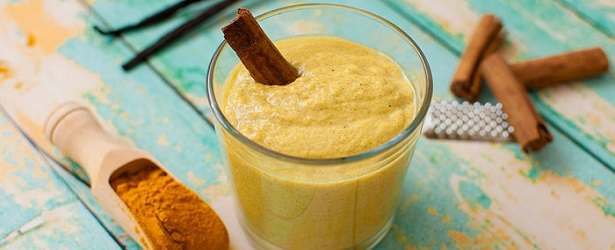
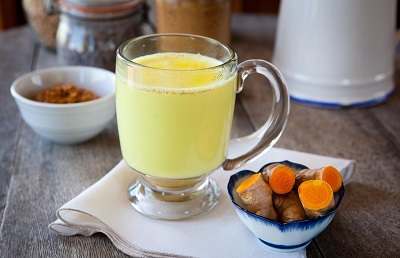 Turmeric may also be drank as a milk. In fact, many people take turmeric with milk for general health benefits. When you combine it with milk, turmeric is used as a drink, lotion or even a face mask.
Turmeric may also be drank as a milk. In fact, many people take turmeric with milk for general health benefits. When you combine it with milk, turmeric is used as a drink, lotion or even a face mask. Turmeric Face Mask Directions — This is great for acne. To use as a mask or wash, take ¼ cup of whole milk and add to this ½ teaspoon ground turmeric. Take a clean washcloth, soak in the mixture and apply to affected skin. Leave it for 10 minutes before washing off.
Turmeric Face Mask Directions — This is great for acne. To use as a mask or wash, take ¼ cup of whole milk and add to this ½ teaspoon ground turmeric. Take a clean washcloth, soak in the mixture and apply to affected skin. Leave it for 10 minutes before washing off.
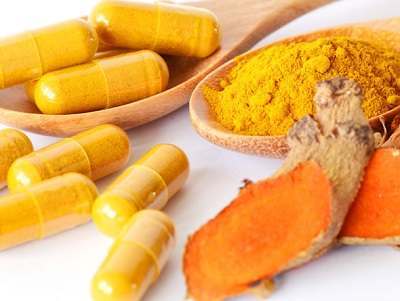
 Another note — Although there is no specific research with regards to curcumin, when nutrients are not consumed with the other nutrients they naturally occur with, they are poorly absorbed. It is possible that this is also true for curcumin.
Another note — Although there is no specific research with regards to curcumin, when nutrients are not consumed with the other nutrients they naturally occur with, they are poorly absorbed. It is possible that this is also true for curcumin.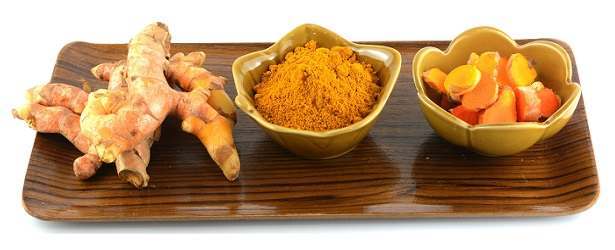

 Uterine Effects
Uterine Effects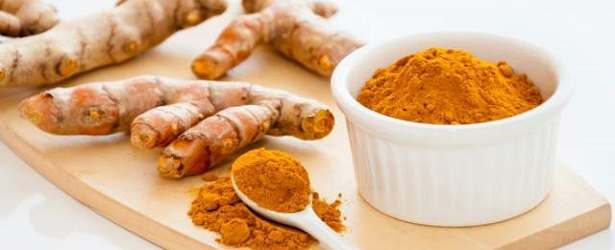
 An effective relief for depression
An effective relief for depression This is done by increasing a growth hormone in the brain called BDNF. When this hormone decreases in the brain it becomes prone to multiple disorders such as depression and
This is done by increasing a growth hormone in the brain called BDNF. When this hormone decreases in the brain it becomes prone to multiple disorders such as depression and 
 Major signs of
Major signs of  A preliminary clinical study conducted on eighteen patients suffering from rheumatoid arthritis indicated that a dosage of 1200 mg of curcumin supplements on a daily basis for a two-week period proved to be beneficial in helping to stabilize and relieve most of the usual symptoms associated with their condition.The resulting relief was just as good as that of renown prescription drugs,and yet without the usual side effects that are common with conventional prescriptions. It is also believed that combining turmeric with ginger and taking it on a regular basis may confer immense relief benefits to fibromyalgia patients. Alternative treatments such as such as turmeric may also offer alleviation in a much safer manner even when it is used for the long-term. Curcumin,an active component of turmeric can also offer anti-inflammation relief that may also be of great benefit to the treatment of this condition as well. Although the medicinal effects of curcumin in clinical studies are still in their initial stages, the results it has demonstrated in lab tests and rodents are a valid that needs to be followed up.As at now,we can talk about its impact in regard to anti-cancer effects,cardio-vascular effects,ability to boost and restore memory and various ulcer conditions even though more scientific research is still necessary in order to add more weight to the validity of these benefits.
A preliminary clinical study conducted on eighteen patients suffering from rheumatoid arthritis indicated that a dosage of 1200 mg of curcumin supplements on a daily basis for a two-week period proved to be beneficial in helping to stabilize and relieve most of the usual symptoms associated with their condition.The resulting relief was just as good as that of renown prescription drugs,and yet without the usual side effects that are common with conventional prescriptions. It is also believed that combining turmeric with ginger and taking it on a regular basis may confer immense relief benefits to fibromyalgia patients. Alternative treatments such as such as turmeric may also offer alleviation in a much safer manner even when it is used for the long-term. Curcumin,an active component of turmeric can also offer anti-inflammation relief that may also be of great benefit to the treatment of this condition as well. Although the medicinal effects of curcumin in clinical studies are still in their initial stages, the results it has demonstrated in lab tests and rodents are a valid that needs to be followed up.As at now,we can talk about its impact in regard to anti-cancer effects,cardio-vascular effects,ability to boost and restore memory and various ulcer conditions even though more scientific research is still necessary in order to add more weight to the validity of these benefits.
 Turmeric is famed to be a wonder spice loaded many medicinal capabilities that are known to combat a wide range of ailments. One such capability is the effect it has on the growth, development and spread of cancer cells. It does inhibit and also weakens their ability to destroy healthy cells in the body. This is according to many researches and numerous studies that have been conducted in many renown universities across the world.
Turmeric is famed to be a wonder spice loaded many medicinal capabilities that are known to combat a wide range of ailments. One such capability is the effect it has on the growth, development and spread of cancer cells. It does inhibit and also weakens their ability to destroy healthy cells in the body. This is according to many researches and numerous studies that have been conducted in many renown universities across the world. For you to have a share of the health
For you to have a share of the health 
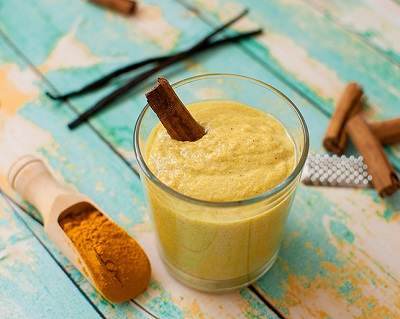 Just read this
Just read this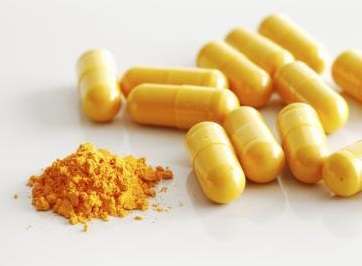 You can take turmeric in the following forms.below is a list of the available options that you can take in order to benefit from its immense health-enhancing capabilities:
You can take turmeric in the following forms.below is a list of the available options that you can take in order to benefit from its immense health-enhancing capabilities: